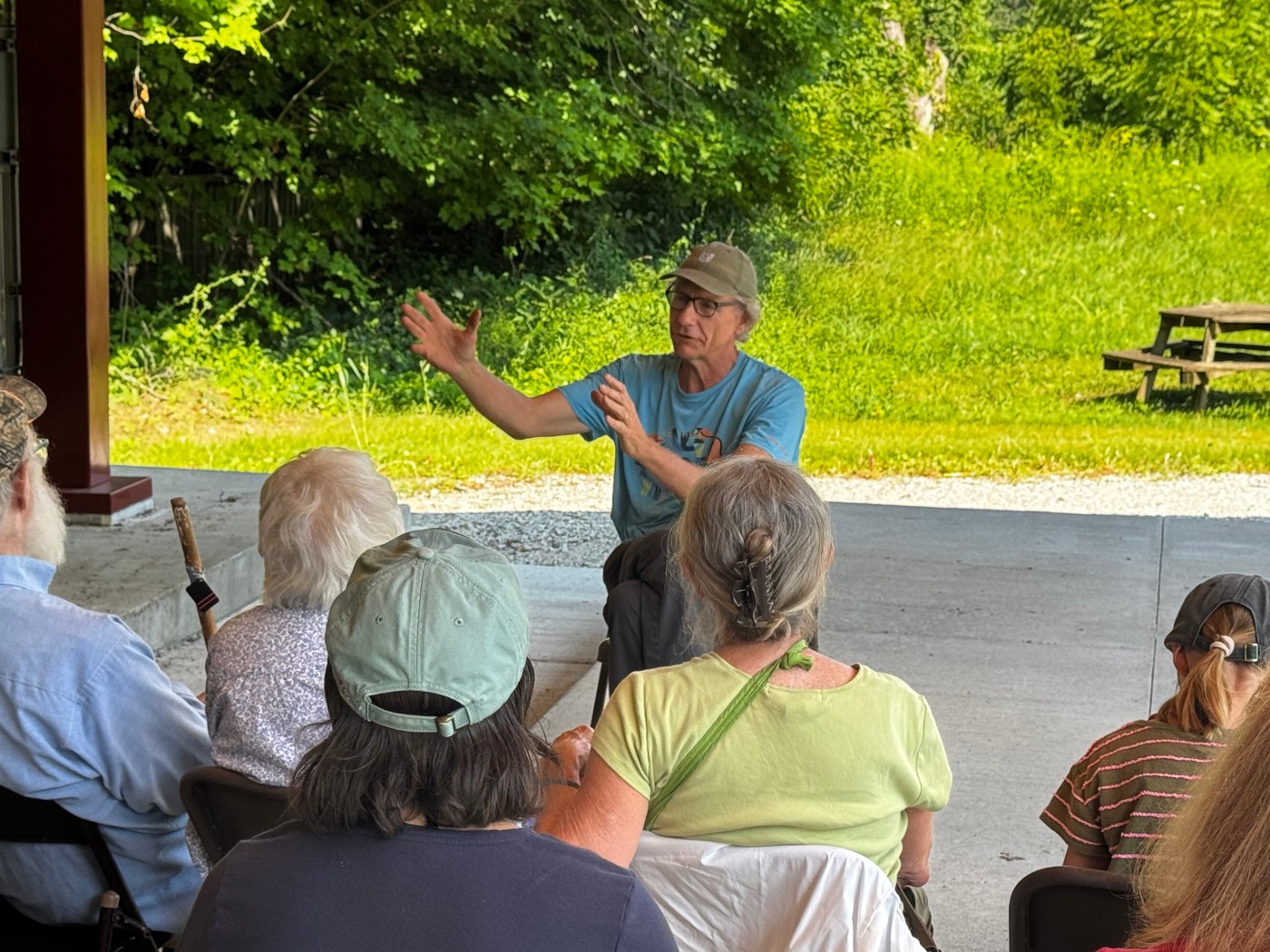BREAKING: Experts warn that increasing summer heat is endangering amphibian populations in Valparaiso, Indiana. More than 30 nature enthusiasts gathered at Meadowbrook Nature Preserve this past Saturday to learn about the critical impacts of rising temperatures on amphibians from Spencer Cortwright, an associate professor of biology at Indiana University Northwest.
“Amphibians like salamanders, frogs, and toads face significant stress during hot, dry months,” Cortwright stated. “Their primary goal in August is to stay hydrated to breathe through their skin.” The urgency of the situation is heightened as Cortwright noted that the lack of rainfall in June and July has made survival increasingly difficult for these vulnerable species.
During the engaging program, Cortwright led participants through Meadowbrook, showcasing the habitats crucial for amphibians. “If you handle a frog or toad, you risk forcing them to lose vital water reserves,” he explained. “However, if heavy rain is expected, it’s safe to pick them up since they can rehydrate.”
Among the attendees was Marie Furmanski, a teacher from Chesterton, who expressed her dedication to environmental education. “I hike often and have a keen interest in nature,” she shared. “I want to learn more about amphibians to pass on to my students.”
Participants eagerly explored the preserve’s trails, where they discovered a blue-spotted salamander hiding under a log. Cortwright highlighted the unique biology of these creatures, stating, “They can hybridize, forming an all-female species.”
As amphibians have existed on Earth for over 300 million years, Cortwright warned that they now face unprecedented decline. “In the last 30-50 years, amphibian populations have plummeted at an alarming rate,” he said, attributing this crisis to various factors linked to the growing human population.
Cortwright’s work extends beyond this presentation, as he teaches courses on restoration ecology and vertebrate zoology. He also conducts informative webinars for the Shirley Heinze Land Trust, aiming to raise awareness about local conservation efforts.
Allison Wagner, stewardship assistant for the Land Trust, emphasized the importance of these initiatives: “We aim to inform the public about pressing restoration topics and help them understand the ecosystems they interact with daily.”
As the climate crisis continues to threaten biodiversity, events like this one are crucial for fostering awareness and encouraging conservation efforts. For more information on future programs, visit heinzetrust.org.
Stay tuned for further updates as the situation develops. It is crucial that communities come together to support amphibian conservation during these critical times.
